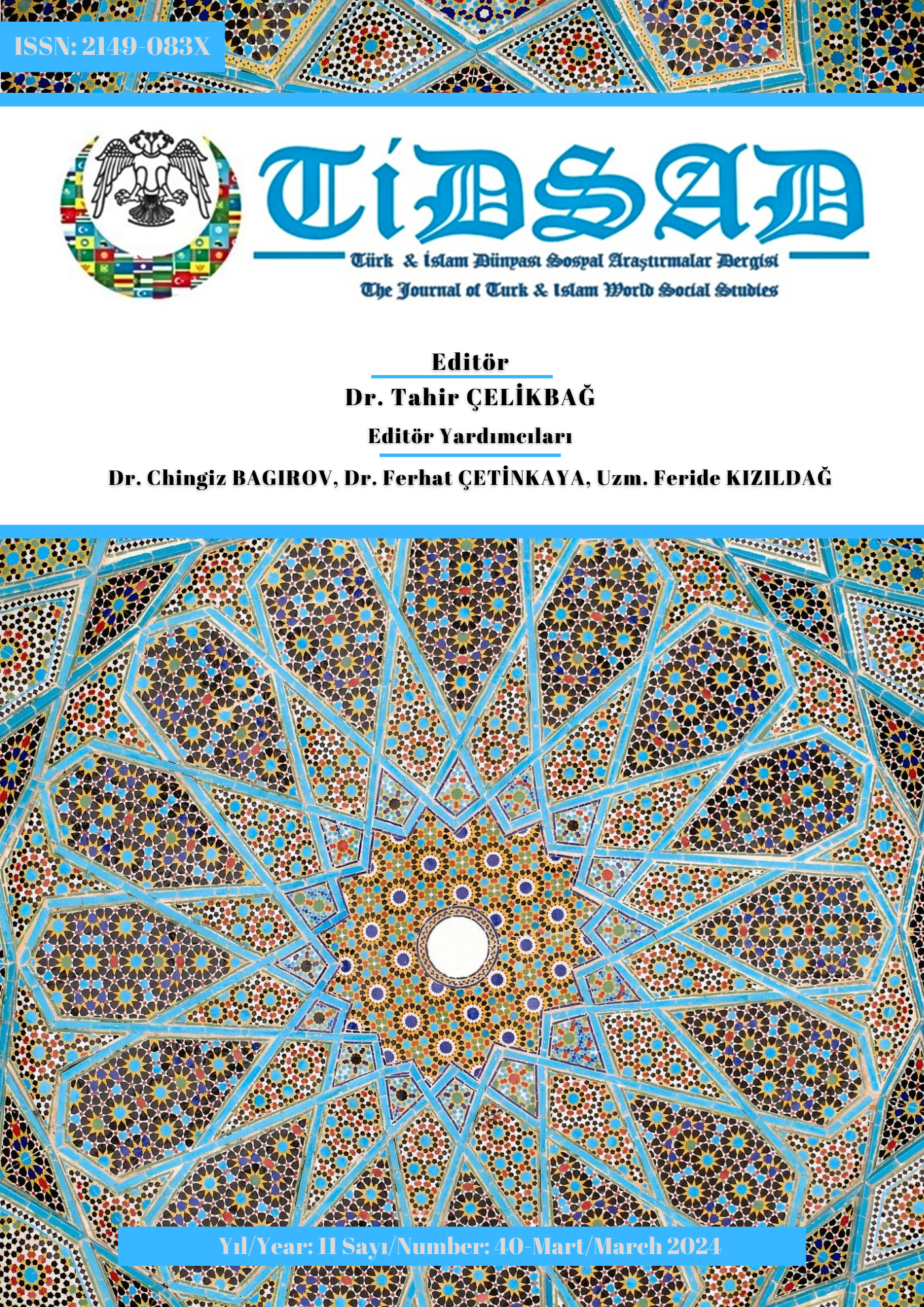دور الدراما والمسرح في تحسين مهارات الاستماع لدى متعلمي اللغة العربية Yabancı Dil Olarak Arapça Öğrenenlerin Dinleme Becerilerini Geliştirmede Drama ve Tiyatronun Rolü
Author :
Abstract
Araştırma, yabancı dil olarak Arapça öğrenenlerin dinleme becerilerini geliştirmede drama ve tiyatronun rolünü belirlemeyi amaçlamaktadır. Betimleyici yaklaşım, drama ve tiyatro kavramları ve öğrencilerin dinleme becerisindeki dilsel başarılarındaki dilsel yeterlilikleri ve dili öğrenme hedefine ulaşabilecek eğitim çıktıları ile tanımlanan konularını ele almanın bir yolunu izlemiştir. Araştırmanın ulaştığı sonuçlar arasında: Drama ve tiyatro dil öğretiminde izlenebilecek modern eğitim yöntemlerindendir. Dil öğretiminin amacı işlevsel ise öğrencilerin dil becerilerinin, bunları doğru biçimde pratik olarak uygulamalarını sağlayarak elde edilmesidir. Drama, öğrencilere kendi ihtiyaçları ve ilgileriyle ilgili çeşitli yaşamsal durumlarda dili kullanma fırsatı verir. Tiyatro aynı zamanda bir yandan stresi ve kaygıyı azaltmada, diğer yandan da dil yeterliliğini doğal ve bağlamsal bir şekilde geliştirmede önemli bir rol oynar. Drama ve tiyatro, öğrencileri motive etmeye çalışan ve öğrenme sürecine eşlik eden eğlence ve eğlence sağlayan özgün, iletişimsel edebi metinlerdir. Araştırma şunları önermektedir: Öğretmede, kavramları basitleştirmede, bilgiyi kolay ve rahat bir şekilde aktarmada drama ve tiyatronun eğitim aracı olarak kullanılmasının gerekliliği, Arap dili öğretimini geliştirmek için, öğretim yöntemlerini çeşitlendirmek ve burada önemli bir rol üstlenmesi gereken, pasif ve alıcı değil, aktif ve etkileşimli öğrenciye odaklanmak gerekir.
يهدف البحث تعرُّف دور الدراما، والمسرح في تنمية مهارة الاستماع لدى متعلمي العربية الناطقين بغيرها، وقد اتخذ المنهج الوصفي طريقاً لتناول موضوعاته التي تحددت بمفاهيم الدراما، والمسرح وكفاءتها اللغوية في تحصيلات المتعلمين اللغوية في مهارة الاستماع وما يمكن لها من مخرجات تعليمية تحقق الهدف من تعلم اللغة وتكسب متعلميها مهارة الاستماع. ومن النتائج التي توصل اليها البحث: تُعدُّ الدراما، والمسرح من الأساليب التعليمية الحديثة التي يمكن اتباعها في تدريس اللغة فإذا كان الهدف من تعليم اللغة وظيفياً؛ هو تحقيق القدرات اللغوية عند المتعلمين وذلك بتمكنهم من ممارستها عملياً بشكلها الصحيح، فإن الدراما تعطي فرصة للمتعلمين أن يستخدموا اللغة في مواقف حيوية متنوعة ترتبط بحاجاتهم واهتماماتهم، كما أن للمسرح دوراً كبيراً في التقليل من التوتر والقلق من ناحية، وتعزيز الكفاءة اللغوية من ناحية اخرى بطريقة سياقية طبيعية، وتعد الدراما والمسرح من النصوص الأدبية التواصلية الأصيلة التي تعمل على تحفيز الدارسين وتوفير المتعة والتسلية المرافقة لعملية التعلم، ومما وصى بها البحث؛ ضرورة استخدام الدراما، والمسرح كوسيلة تعليمية في التدريس وتبسيط المفاهيم وتوصيل المعلومة بسهولة ويسر، ولأجل تطوير تدريس اللغة العربية لابد من تنويع طرائق التدريس والتركيز على المتعلم الذي ينبغي أن يأخذ دوراً رئيساً فيها فاعلاً ومتفاعلاً لا سلبياً متلقياً.
Keywords
Abstract
The research aims to determine the role of drama and theater in improving the listening skills of those learning Arabic as a foreign language. The descriptive approach followed a way of addressing the issues defined by the concepts of drama and theater and the linguistic proficiency of students in their linguistic achievement in listening skills and educational outcomes that can achieve the goal of learning the language. Among the results of the research: Drama and theater are among the modern educational methods that can be followed in language teaching. The purpose of language teaching, if functional, is to acquire students' language skills by ensuring that they practically apply them correctly. Drama gives students the opportunity to use language in a variety of life situations relevant to their needs and interests. Theater also plays an important role in reducing stress and anxiety, while improving language proficiency in a natural and contextual way. Drama and theater are original, communicative literary texts that seek to motivate students and provide entertainment and entertainment that accompany the learning process. The research suggests the following: The necessity of using drama and theater as educational tools in teaching, simplifying concepts, transferring information easily and comfortably, in order to improve Arabic language teaching, it is necessary to diversify teaching methods and play an important role here, not passive and receptive, but active and interactive. It is necessary to focus on the student.





